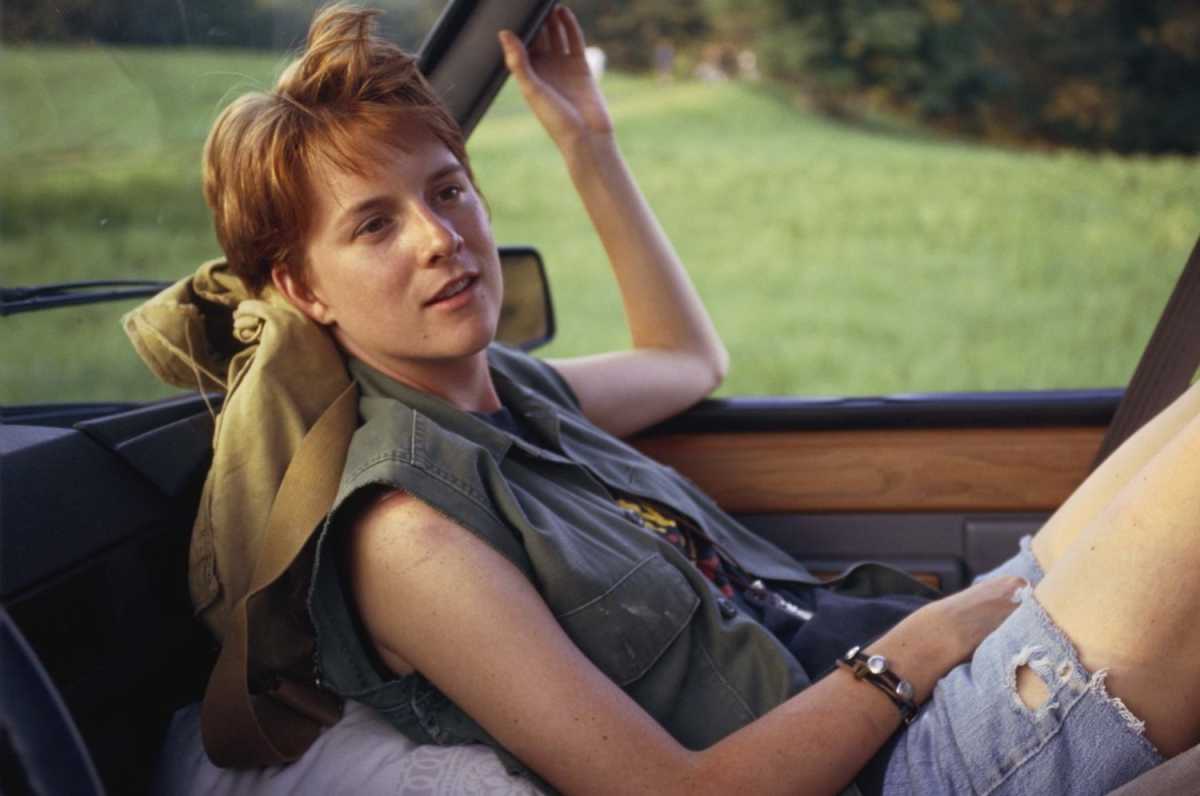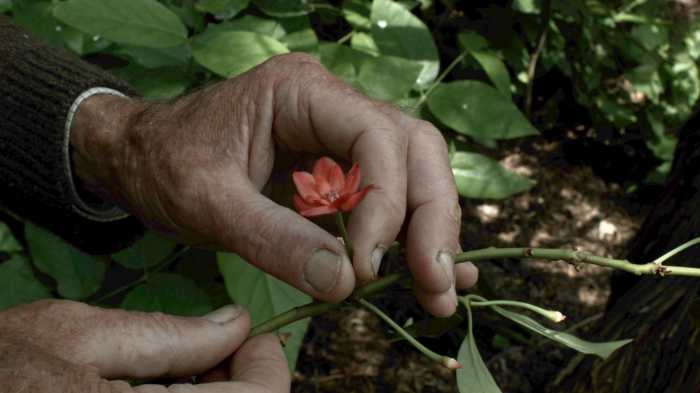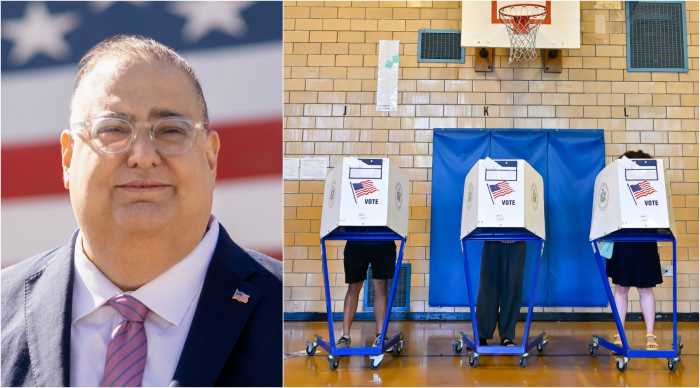An immersive retrospective of lesbian cinema screens Feb. 2-13 at Film Forum. The program, entitled “Sapph-O-Rama,” will showcase more than two dozen features, documentaries, and shorts from director Charles Bryant’s 1922 “Salome” (with live piano) to Leilah Weintraub’s 2018 documentary, “Shakedown.”
In between, there is a variety of titles for every taste, from classics, such as Robert Aldrich’s melodrama, “The Killing of Sister George,” to Jonathan Demme’s women-in-prison flick, “Caged Heat,” as well as the erotic lesbian vampire film, “Daughters of Darkness,” Pedro Almodóvar’s dark comedy, “Dark Habits,” about drug-addicted lesbian nuns, and Celine Sciamma’s outstanding drama, “Tomboy.”
Here is a rundown of ten feature film debuts, all directed by women, most of them out lesbians.
“Madchen in Uniform” (1931) is a remarkable romantic drama about Manuela (Hertha Thiele), a teenager who is sent to a strict all-girls boarding school. But the students are rebellious, passing notes and secret letters, being subversive in this authoritarian setting. There are many pleasing scenes of non-sexual intimacy between the schoolgirls, and the lesbianism in the film is tastefully presented. Manuela becomes infatuated with her teacher, Miss von Bernburg (Dorothea Wieck), and hugs her teacher affectionately during a kiss goodnight. Moreover, Manuela is thrilled when Miss von Bernburg gives her an undergarment, signaling her love for her student. But Manuela incurs shame — and is ostracized by the school’s disciplinarian (Emilia Unda) — when she causes a scandal by drunkenly announcing her love for her teacher. “Madchen in Uniform” is beautifully made — the lighting and black and white cinematography are quite striking — and marvelously acted by the leads. Director Leontine Sagan immerses viewers in this insular world, capturing its characters well in her exciting film debut.
“Je Tu Il Elle” is the late queer director Chantal Ackerman’s auspicious debut feature from 1974. The filmmaker plays Julie, a depressed woman who sits alone in her small room, often naked, and frequently eating sugar from a bag. She is reeling from a breakup and writing (and rewriting) letters. She eventually goes out into the world and connects first with a truck driver (Niels Arestrup), who eventually delivers a monologue about his life, and then with a woman (Claire Wauthion) with whom she has an extended sex scene. Ackerman lets all of this “action” unfold naturally, in grainy black-and-white, and she films it in a series of fixed camera shots. The film is provocative and challenging, and guaranteed to fascinate viewers it doesn’t bore.
Donna Deitch’s emotional, romantic drama, “Desert Hearts,” became an instant classic of lesbian cinema when it was released back in 1985. A coming out story set in 1959, the film has Vivian (Helen Shaver), an English professor, arriving in Reno to wait out a divorce. Staying at a local ranch, she meets Cay (Patricia Charbonneau, in a remarkable debut) who works at a nearby casino. Vivian is prim and proper and wants to “be free of who I’ve been,” while Cay is reckless and seductive. Their slow-burn attraction heats up when the women first kiss in the rain, but as their relationship develops, they set tongues wagging. This lovely film is still impactful.
Writer/director Maria Maggenti’s charming 1995 feature debut, “The Incredibly True Adventure of Two Girls in Love,” has the openly gay Randy (Laurel Hollomon, in her debut) fall for Evie (Nicole Ari Parker, in her debut), a privileged Black teen at her high school. The girls meet cute at a gas station where Randy works, and their attraction builds slowly. When the teens end up in detention together, they get closer, and before long, are passing notes and bonding over Walt Whitman’s “Leaves of Grass.” What is best is how “The Incredibly True Adventure of Two Girls in Love” treats its lesbian characters as normal and everyone else as “freaks.”
In 1996, Cheryl Dunye broke queer cinema ground as the first out African American lesbian filmmaker to direct, write, edit, and star in a feature film. Her scrappy “The Watermelon Woman” is a hallmark of independent queer cinema. Duyne stars as Cheryl, a video store clerk and budding filmmaker, who is fascinated by the (fictional) African American actress Fae “The Watermelon Woman” Richards (Lisa Marie Bronson), after seeing her play a mammy role in “Plantation Memories,” a film from the 1930s. Cheryl starts a video documentary project investigating Fae’s history because “Black women’s stories have not been told.” In the process, she makes some startling discoveries about Fae’s life, work, and relationships. She also begins a relationship with Diana (Guinevere Turner). The film is episodic, ingratiating, provocative, sexy, and fun.
Out lesbian filmmaker Jamie Babbit’s feature debut, the 1999 cult comedy, “But I’m a Cheerleader,” was ahead of its time in its depiction of a conversion therapy camp and queer coming-of-age tropes when it received its original theatrical release in the summer of 2000. The plot has Megan (Natasha Lyonne) being sent to True Directions, a program run by Mary (Cathy Moriarity) to prevent her from living a homosexual life. While Megan protests that she is not gay, she soon become attracted to Graham (out actress Clea DuVall). The film, shot in candy-colored pinks and greens, skewers gender roles with a wink-wink sensibility.
Out director Alice Wu’s 2004 debut was the crowd-pleasing romantic comedy “Saving Face,” a film about a Chinese lesbian named Wilhemina (Michelle Krusiec) processing issues of shame and self-worth she learned from her Mandarin-speaking mother (Joan Chen). A dutiful daughter, whose work as a surgeon leaves her little time for relationships, the closeted Wil takes a chance on romance when a beautiful dancer named Vivian (Lynne Chen) catches her eye. However, Wil’s prospect of happiness is complicated first by the fact that Vivian is her boss’ daughter, and second by the unexpected arrival of her pregnant mother who has been banished from her home. This is an enjoyable film about mother and daughter dynamics.
“Pariah,” is out writer/director Dee Rees’ outstanding 2011 feature debut based on her 2007 short of the same name. Alike (Adepero Oduye) is a teenager who hides her AG, (aggressive) butch identity from her religious mother Audrey (Kim Wayans), while also grappling with her desires for her classmate, Bina (Aasha Davis). The dazzling cinematography reinforces images of Alike’s gender, sexuality, and identity, and Rees allows her characters to have quiet, revealing moments. The drama comes to a head in a searing, shattering moment, but Alike’s articulation of her desires and frustrations never seem cliché because of Rees’ sensitivity as a filmmaker and Oduye’s incandescent performance.
“Codependent Lesbian Space Alien Seeks Same” is writer/director Madeleine Olnek’s amusing deadpan romcom about Jane (Lisa Haas), who begins a relationship with Zoinx (Susan Ziegler), an alien from the planet Zots. Their dating is sweet; Zoinx touches Jane’s nose to express her affection, they go to the movies and dancing at a club. Jane becomes more empowered with Zoinx than she does in her sessions with her therapist (Rae C. Wright). “Codependent Lesbian” also features a subplot, which gets a little tired, about two agents (Denis Davis and Alex Karpovsky) tracking Jane and Zoinx. The B-movie aesthetic is fun, and there are some droll discussions about cheesecake. This is a modest film that provides some laughs.
“Shakedown” is an eye-opening 2018 documentary by Leilah Weinraub about the women who participate in the Black lesbian strip club in 2004 Los Angeles. Offering a peek into this subculture and this safe space, Weinraub interviews dancers such as Egypt and Jazmyne as well as Miss Mahogany, a House Mother, about their lives and experiences “selling the fantasy.” “Shakedown” also takes viewers into the dressing rooms where the dancers prepare, dish, and bond, as well as onto the floor for some pretty explicit performances. But then undercover cops ruin the party. Weinraub’s film is both raw and affectionate, and an illuminating time capsule shines a light on these queer Black women’s experiences.
For tickets, schedules, and showtimes, visit filmforum.org/series/sapph-o-rama



































